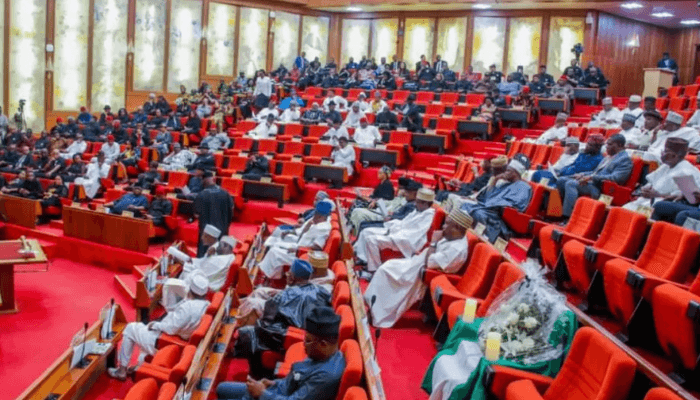The Senate on Wednesday commenced consideration of a bill seeking to repeal and re-enact the National Primary Health Care Development Agency (NPHCDA) Act to ensure equitable and accessible health services for Nigerians.
The proposed legislation, titled National Primary Health Care Development Agency (Repeal and Enactment) Bill, 2025 (SB. 900), was sponsored by Solomon Adeola (APC, Ogun West).
Leading debate on the general principles of the bill, Adeola said the proposed law aims to reposition the agency as the main driver of universal access to quality primary health care, in line with ongoing health sector reforms and international best practices.
“Primary health care remains the foundation of every functional health system because it is the closest form of healthcare service available to the people — the first point of contact for preventive, promotive, and basic curative services,” Adeola said.
The lawmaker noted that the existing Act, which established the NPHCDA in the early 1990s, has become outdated and no longer reflects the realities of Nigeria’s evolving health needs.
“The framework guiding the Agency’s operations no longer aligns with current realities. It fails to capture universal health coverage, digital health integration, or community health insurance,” he explained.
Adeola added that the proposed legislation seeks to create a more responsive structure that promotes decentralisation, accountability, and community-led service delivery.
He said it would also enhance coordination among the three tiers of government, strengthen sustainable financing through innovative mechanisms, and integrate technology, data systems, and research into primary health care delivery.
According to him, the bill will empower Ward Health Committees and encourage community participation in the management of local health facilities.
Read also: Prioritise Nigerians’ welfare, Pate urges striking doctors
“This bill is not just about restructuring an agency; it is a deliberate legislative effort to bring healthcare closer to every Nigerian—especially the less privileged, women, and children who bear the highest disease burden,” Adeola stated.
He further said the proposed law would help Nigeria achieve Sustainable Development Goal 3 (Good Health and Well-being) and boost the country’s resilience against public health emergencies.
“Without a functional and well-coordinated primary health care system, no nation can achieve equitable growth or human capital development,” he stressed. “This bill represents our collective resolve to ensure that no community is left behind.”









